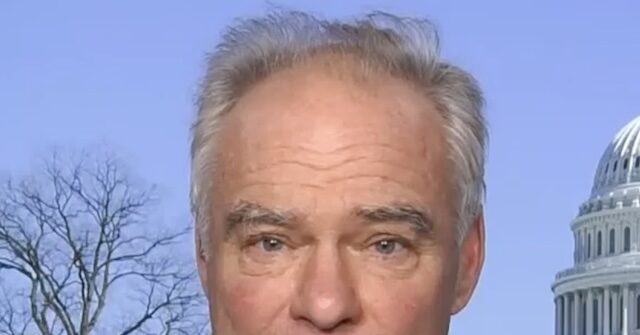Stocks fell sharply on Monday as Wall Street returned from a shortened trading week and President Trump renewed his criticism of Federal Reserve Chair Jerome Powell, branding him as a “major loser.”
The S&P 500 fell 125 points, or 2.4% to close at 5,158, while the Dow Jones Industrial Average tumbled 972 points, or 2.5%, to 38,170. The tech-heavy Nasdaq Composite sank even more sharply, dropping 2.5%.
Stocks fell as investors grapple with ongoing tariff uncertainty and await the release of U.S. tech companies earnings this week.
Global activity remained light heading into Monday as a good portion of markets around the world – including Europe along with Hong Kong and Australia – remain closed for Easter Monday.
Outside of the stock market, the dollar index slid to its lowest level since 2022 weakening the currency’s value, while gold reached another record high. Those movements, coupled with the rise of long-term treasury yields, signal investors are increasingly concerned about the safety of U.S. assets.
“Investors are in a foul mood, selling stocks and bonds and buying gold, and we believe this is a result of weakening confidence among global investors — as well as some U.S.-based investors — as news breaks of assaults on the Fed’s independence and increasing concerns about shaking up the existing world order,” Chris Zaccarelli, chief investment officer for Northlight Asset Management, said in an email to CBS MoneyWatch.
Pressure on Powell
The shaky start in the U.S. stock market on Monday follows another volatile week in the stock market as investors weigh how the Trump administration’s tariffs and a potential Fed shakeup might impact economic activity.
“Notwithstanding the recent relief for electronic goods, the tariffs on China are leading to a standstill in some trade activity,” said Tim Duy, chief economist at SGH Macro Advisors, in a research note.
Stocks also took a hit last Wednesday after Fed chief Powell warned that tariffs could drive up U.S. inflation and stymie growth.
President Trump and his team have floated the idea of firing Powell, who Mr. Trump tapped to lead the central bank during his first term in 2017. Although many legal experts — and Powell himself — say the president lacks authority to fire a Fed chief, Mr. Trump’s fierce criticism has fueled investor concerns that the White House could defy norms and seek to replace the central bank chief.
Referring to Powell, Mr. Trump said on Truth Social on Monday that the economy could slow down “unless Mr. Too Late, a major loser, lowers interest rates, NOW.”
Mr. Trump has put increasing pressure on Powell to lower the Fed’s benchmark interest rate, which would spur economic growth but also risk boosting inflation.
“The problem is that Powell’s term still has more than a year to go while Trump’s tariffs haven’t even shown up in the data, which means the battle between the Fed and White House could get a lot worse in the coming months,” Adam Crisafulli, head of Vital Knowledge, said in a report.
A landmark Supreme Court Ruling from 1935 upholds the independent authority of the Fed and would make it difficult to fire Powell before his term concludes on May 15, 2026. But that hasn’t stopped Mr. Trump from taking aim at Powell, who has stood firm against cutting interest rates until the Fed has more economic data on how tariffs will affect the economy.
“I strongly hope that we do not move ourselves into an environment where monetary independence is questioned,” Chicago Fed president Austan Goolsbee told CBS News’ senior White House correspondent Weijia Jiang on Face the Nation yesterday. “Because that would undermine the credibility of the Fed.”
Tech in the spotlight
Investors this week will also focus on corporate earnings from major technology players. Those companies, known informally as the “Magnificent Seven,” include Amazon, Google-parent Alphabet, Apple, Facebook-parent Meta Platforms, Microsoft, Nvidia and Tesla.
The big tech group’s stocks whipsawed in recent weeks after the Trump administration imposed reciprocal tariffs and then backtracked, later announcing office high-tech products would be exempt, if only temporarily.
Since Mr. Trump’s inauguration on January 20, the Magnificent Seven’s combined market value has dropped by $3.8 trillion, or 22%, as of April 20.
The Associated Press
contributed to this report.
Mary Cunningham is a news associate at CBS News, based in New York. She has worked on both the broadcast side, with CBS News 24/7 streaming, and the digital side, writing stories for CBSNews.com. Her next assignment is working with the “60 Minutes” team.
The post Stocks slump as Trump renews criticism of Fed chief Powell appeared first on CBS News.




